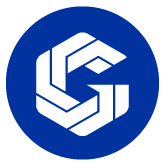

|

|
| Major: 1111
Catalog Year: 2023-2024
Effective Term: 2022 Fall
Last Admit Term: 2023 Summer
Award: CCT Total Clock Hours: 724 CIP Code: 48.0508 |
Initiating College: Gateway Community College
Program Availability: Not Found
Program Availability: College-Specific
Field of Interest: Applied Technology
GPA: 2.0
|
|
SOC Code: Upon completion of this program, students may pursue a career as:
51-4121.00 Welders, Cutters and Welder Fitters | |
|
|||||||||||
| Required Courses | |||||||||||
|---|---|---|---|---|---|---|---|---|---|---|---|
WTO106AA Introduction to SMAW 165 | Clock Hours: 724 | ||||||||||
| Learning Outcomes | |||
|---|---|---|---|
| 1. Adhere to industry safety regulations applicable to welding environments. (CST103, CST104, WTO106AA, WTO206AA, WTO206AB, WTO208AB)
2. Demonstrate proficient use of machines, tools and equipment in the welding environment (CST103, CST104, WTO106AA, WTO206AA, WTO206AB, WTO208AB) 3. Using appropriate welding and cutting processes and procedures, prepare various types of weld joints per industry standards. (CST103, CST104, CST105, CST107, WTO106AA, WTO206AA, WTO206AB, WTO208AB) 4. Using appropriate welding and cutting processes and procedures, perform various types of welds on industry standard joint types in all positions. (CST103, CST104, CST105, CST107, WTO106AA, WTO206AA, WTO206AB, WTO208AB) 5. Describe quality control standards and practices applied in welding inspection in the welding industry. (WTO106AA, WTO206AA, WTO206AB, WTO208AB) 6. Interpret technical drawings common to welding. (CST105, CST107, WTO106AA, WTO206AA, WTO206AB, WTO208AB) 7. Use mathematical skills to solve basic welding problems (CST105, CST107, WTO106AA, WTO206AA, WTO206AB, WTO208AB) 8. Solve basic welding problems applying a fundamental understanding of the physical, mechanical and chemical properties of materials. (WTO106AA, WTO206AA, WTO206AB, WTO208AB) 9. Demonstrate quality workmanship in a timely manner. (WTO106AA, WTO206AA, WTO206AB, WTO208AB) 10. Demonstrate professional knowledge and personal accountability. (CST103, CST104, WTO106AA, WTO206AA, WTO206AB, WTO208AB) 11. Effectively communicate verbally, non-verbally and in writing in various workplace environments. (CST103, CST104, CST107, WTO106AA, WTO206AA, WTO206AB, WTO208AB) 12. Identify the challenges and employment opportunities within the field of welding. (WTO106AA, WTO206AA, WTO206AB, WTO208AB) 13. Identify opportunities to expand knowledge, skills, and abilities within the field of welding. (CST103, CST104, CST107, WTO106AA, WTO206AA, WTO206AB, WTO208AB) | |||
|
+ indicates course has prerequisites and/or corequisites.
++ indicates that any suffixed course may be selected. Clock Curriculum Committee Approval Date: 2-11-2022 | |||